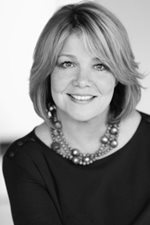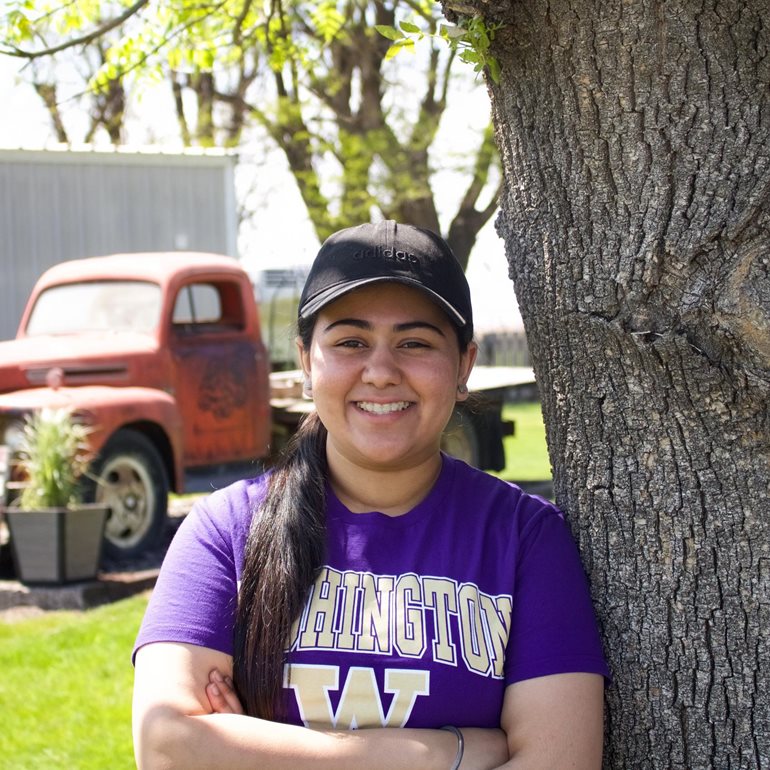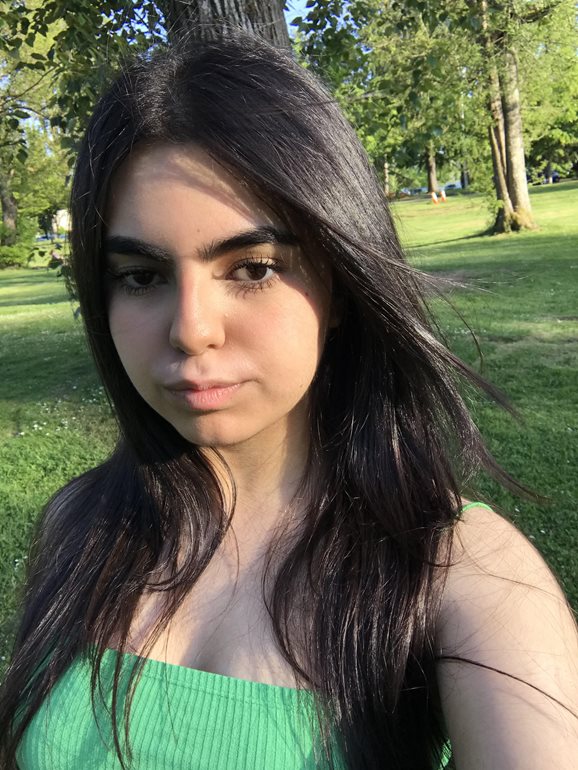Imagine that a person is diagnosed with a disability, but instead of receiving care, accommodations or support, they are instead segregated from society. As horrific as this sounds, this was the reality a mere 40 years ago.

In the early 1970s, there was legalized segregation. Children with disabilities were denied a free appropriate public education and were treated as second-class citizens. Dr. Mo West, associate teaching professor in the University of Washington Bothell’s School of Nursing & Health Studies, not only lived through this time period — she also suffered from its harm as her brother is disabled.
“To me, he was always my brother Mark, but to everyone else he was ‘different,’” she said. “He was always excluded from activities, made fun of and treated as less than. By middle school, I started getting treated differently, too. I stopped getting invited to sleepovers and was teased because my brother was ‘weird.’ It really hurt and opened my eyes to ableism.”
But from this pain, West found her passion. “I became bound and determined to make disability scholarship my life and dismantle oppression against people with disabilities.”
She went on to work in the United States Senate as a professional staff member on the passage of the Americans with Disabilities Act, received her doctorate in Nursing with a focus on Critical Disability Studies, and now teaches a Discovery Core class at the UW Bothell called Disability Representation in Society.
Changing what society sees
West’s course is part of UW Bothell’s Discovery Core, a series of interdisciplinary seminars that help first-year and pre-major students transition to college life. The class provides students with introductory knowledge of critical disability studies, which is an expanding, multi-disciplinary field that investigates, critiques and enhances society’s understanding of disability. “It makes for a perfect Discovery Core class because we are an institution that embraces diversity and values difference. It gives first-year students a sense for what UW Bothell stands for,” West said.
“Moreover, disability is not limited to just this field. The knowledge they gain from this class will translate to whichever career they end up in and offer new ways of advancing inclusion, ensuring workplaces and communities accommodate, augment and emphasize the qualities we hold as human beings.”
Throughout the quarter, students read the work of scholars and activists such as trailblazers Simi Linton and Patti Berne who are part of the growing disability-justice movement. While the justice movement builds on the success of the disability rights movement, it takes a more expansive approach by recognizing the intersectionality of disabled people belonging to multiple, marginalized communities.
These activists’ efforts have had a cascading effect with more and more people coming out as disabled, taking pride in their identities and advocating for more accurate representation. It is in part because of these scholars and activists that the entertainment industry has started hiring more people with disabilities to be in television series and films. Entertainment media is a major focus of society and, as a result, of this class.
“It can be extremely powerful for people who come from historically underrepresented or marginalized communities to see themselves in positions of power as change agents to challenge cultural misrepresentation and reshape the disability narrative.” West said. “We still have a long road ahead of us, but we have definitely made a start.”
Students see injustice
West integrates films and television series that cast people with disabilities into the course work. For the midterm, students choose one to view and analyze, using the framework outlined by the scholars and activists they study.

First-year student Alisha Sohi selected “Music,” a film created by Australian singer and songwriter Sia. The movie is centered around a recovering drug addict who is left to take care of her younger sister, Music, after their grandmother passes away.
“In the film, Music has a nonverbal form of autism, yet she is played by a neurotypical actress,” Sohi said. “It is unfair to individuals with autism to have a neurotypical actress portray their lived experiences — it’s a classic example of ableism.”
She said that while this movie was meant to represent the autism community, it did not make any effort to include the community or be mindful of them.
“There are individuals on the autism spectrum who cannot handle certain forms of overstimulation, and bright and flashing visual effects can sometimes be a trigger. Yet, in the movie, there are several long musical numbers with bright and flashing colors that some autistic viewers found distressing.”
Before taking this class, Sohi said she likely wouldn’t have grasped just how problematic the film was. “In a way, I feel like I have gone through life blind. I never truly saw all the injustices people with disability face,” she said. “This class opened my eyes.”
And they act on it
First-year student Ayla Badr chose the film “Edward Scissorhands” for her midterm essay. “I saw it as a metaphor for the disabled community who are commonly treated as outcasts,” she said.

Badr signed up for the class to educate herself, and her community, on ways to be a better ally to disabled people. “I had been struggling a lot mentally during the pandemic, and it made me more cognizant of the struggles people with mental disabilities like depression and anxiety face,” she said.
“A lot of times, they don’t have the voice to advocate for themselves because they are so shut down and their energy is already depleted. Having had a window into what that is like motivated me to really step up and do my part in being a better supporter.”
She hopes to start a club on campus filled with fellow advocates. “Dr. West isn’t just a really good professor — she is a really good person. Learning from her motivated me to follow in her footsteps, and like her, I want to do what I can to make sure people with disabilities lead a fulfilling life,” Badr said.
“I have only been on campus less than a year, but thanks to this class I have already grown so much.”
Living lessons
West said that what she loves most about teaching this class is being able to center the history, perspectives and voices of people with disabilities.
“That is how we move forward toward a more inclusive society,” she said. “If our students are going to leave UWB with a great liberal arts education, they must learn to think critically about difference and engage in the histories of marginalized communities.
“My hope is that students take what they learn and apply it in their professional life to think critically, advance the world and, ultimately, to be responsive citizens.”




